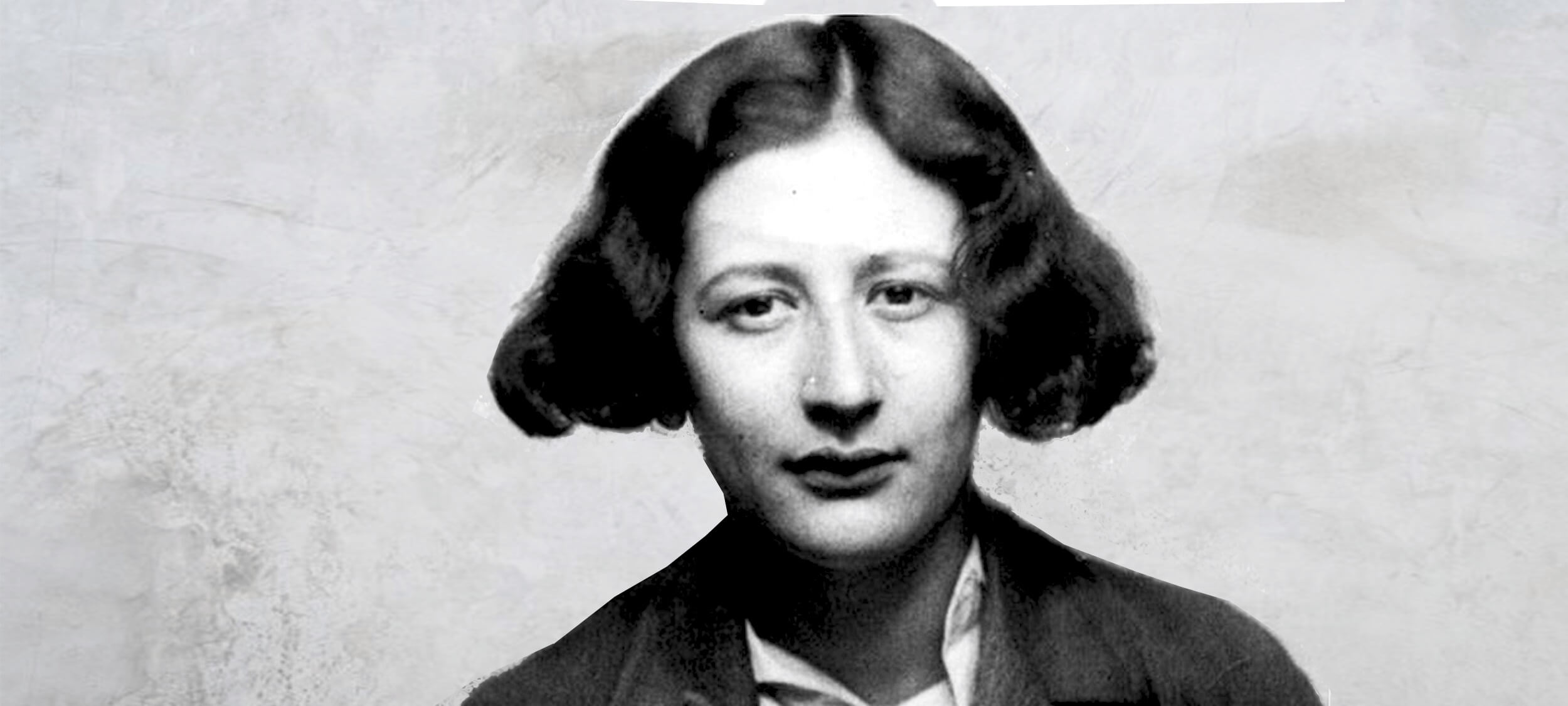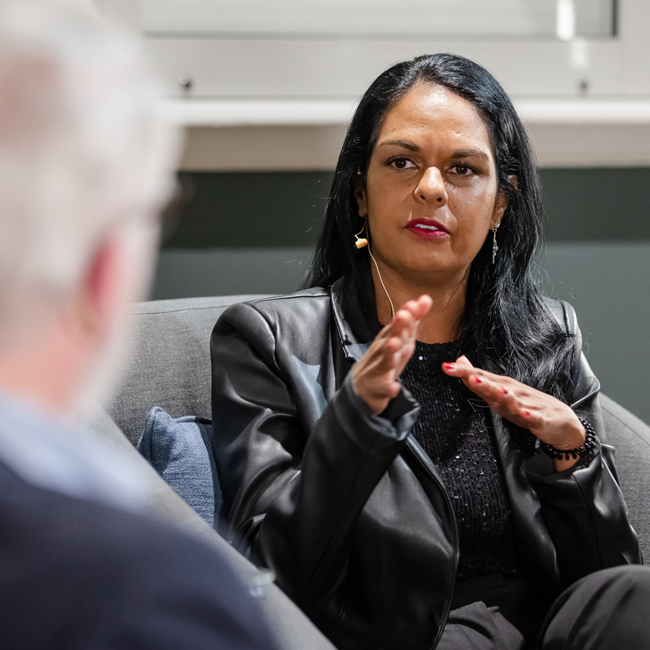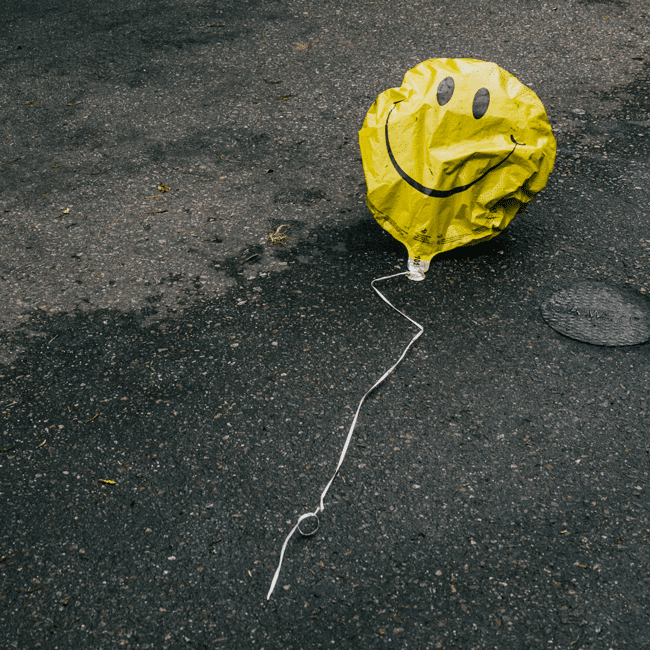Ozi Batla: Fatherhood is the hardest work I’ve ever done

Ozi Batla: Fatherhood is the hardest work I’ve ever done
Opinion + AnalysisRelationships
BY Shannon Kennedy The Ethics Centre 4 MAR 2016
On his interest in ‘Mankind – Deconstructing Masculinity’:
Masculinity is something I’ve been thinking about a bit lately. I’ve been raising my boy for the past year and a half and having your first kid makes you wonder about the things you’ve learned and the things you want to pass on.
There are a lot of things I learned that I don’t want to pass on, and even more stuff I never really considered before I became a dad – things I don’t have the answers for.
On being a full-time dad:
I’ve had to come to grips with the challenges of being a stay-at-home dad.
Support and network groups are almost entirely set up for mums. Our entire parenting language is set up around mums. We have ‘mothers’ groups’ or in my case ‘mums’ surfers groups’ so someone could watch my son while I went for a surf. I felt really excluded from a lot of these activities.
It’s the hardest work I’ve ever done but it’s still not considered a man’s work.
There’s a patronising assumption about men in parenting roles. My boy had a meltdown at swimming the other day and other parents looked at me as though I wasn’t used to it. They said things like “Oh, you’re doing so well”, and I thought “Thanks, I’ve been doing this full time for a year and a half”. It felt pretty patronising.
Like a lot of men, I defined myself by my work, which has taken a back seat lately. I’ve been dealing with the shifting definitions of my own identity. It’s weird, because it’s the hardest work I’ve ever done but it’s still not considered a man’s work.
On the pressure fathers face to teach their sons ‘what it means to be a man’:
I think it’s probably the same for most men. I’m assuming it was for my dad – he didn’t have those answers for me when I was growing up. A lot of it gets left to outside sources to inform you.
I didn’t really take much of that on board. I just tried to keep my head down at school and get out of there. The way the school approached masculinity was completely at odds with the way my parents were trying to raise me and my brothers.
I’ve only recently realised the influence of all this. In a few years’ time my son is going to get picked on, get into fights, and ask me the same kind of questions.
On his journey toward hip hop:
The school I went to was very sort of ‘jock’, and I wasn’t like that at all. My journey into hip hop was a way of dealing with that and overcoming the trauma. It was a defensive mechanism – my parents didn’t instil this in me – but you do need to fight in one way or another. Words became my weapons. It’s only recently that I’ve realised that was a big influence in leading me into hip hop.
On masculinity and sexism in Australian hip hop:
Like a lot of the music industry, hip hop has been male dominated, although it hasn’t been part of my experience – aside from a few years of battle rapping, which was part of my journey to establish some boundaries. Battling was a way to make up for my time at school and I wish I’d been able to use those skills to create space around me.
There is a lot of very macho and sexist culture around hip hop music, but I don’t think it’s exclusively that way, and I think it’s been changing, in lots of ways, The Herd was a challenge to that whole notion of hip hop.
On The Herd’s re-imagination of Redgum’s ‘I Was Only 19’:
War is an extension of those more negative aspects of masculinity. It’s almost the biggest manifestation of them. There was a lot of anger around the Vietnam War – seeing these patterns repeated. I think the original is quite angry in its own folksy way.
I know from hanging out with John Schumann that the people he was writing about, and writing for, were certainly angry about the way they’d been treated.
War is an extension of those negative aspects of masculinity.
On veterans:
There’s a notion, especially in Australia – it probably comes from the Anglo tradition – that you should just “suck it up and get on with it”. I think it’s one of the most damaging parts of male identity in this country and a big contribution to high youth suicide rates, drug abuse and mental health issues.
There have been big campaigns to move that along, but generally men are still supposed to cop it on the chin and move on. I think that’s a major issue for a lot of returned soldiers and other men. It’s still considered fairly awkward to delve into your feelings with other men.
On radicalisation and alcohol violence among young people:
It’s all part of the same thing. I think a lot of kids involved with radical organisations are pretty stupid, but kids tend to be.
You do need to fight in one way or another. For me, words became my weapons.
These kids are caught between two worlds. Being a young male, I think feeling anger, learning to deal with it, and finding an outlet for it is really important. Anger does express itself in different ways, but not having a culture where it’s acceptable to show anger non-physically leads to a number of issues.
Combine all this with the fact that the one space where it is acceptable to be emotional is when you’re pissed, and it’s not surprising to see the problems we do.
For me, hip hop – when I was a teenager – was my angry refuge. The sort of stuff I listened to when I was a teenager isn’t stuff I listen to these days. The music is still nostalgic, but kind of embarrassing. It’s the stuff that attracts young men though. It resonates with something inside them or gives them a bit of an outlet.
Ethics in your inbox.
Get the latest inspiration, intelligence, events & more.
By signing up you agree to our privacy policy
You might be interested in…
Opinion + Analysis
Health + Wellbeing, Politics + Human Rights, Relationships
Ethics in a time of coronavirus
Opinion + Analysis
Relationships, Science + Technology
We are being saturated by knowledge. How much is too much?
Opinion + Analysis
Relationships, Society + Culture
I’m really annoyed right now: ‘Beef’ and the uses of anger
Opinion + Analysis
Relationships
Why we find conformity so despairing
BY The Ethics Centre
The Ethics Centre is a not-for-profit organisation developing innovative programs, services and experiences, designed to bring ethics to the centre of professional and personal life.
Ethics Explainer: Virtue Ethics

Virtue ethics is arguably the oldest ethical theory in the world, with origins in Ancient Greece.
It defines good actions as ones that display embody virtuous character traits, like courage, loyalty, or wisdom. A virtue itself is a disposition to act, think and feel in certain ways. Bad actions display the opposite and are informed by vices, such as cowardice, treachery, and ignorance.
For Aristotle, ethics was a key element of human flourishing because it taught people how to differentiate between virtues and vices. By encouraging examination, more people could live a life dedicated to developing virtues.
It’s one thing to know what’s right, but it’s another to actually do it. How did Aristotle advise us to live our virtues?
By acting as though we already have them.
Excellence as habit
Aristotle explained that both virtues and vices are acquired by repetition. If we routinely overindulge a sweet tooth, we develop a vice — gluttony. If we repeatedly allow others to serve themselves dinner before us, we develop a virtue – selflessness.
Virtue ethics suggests treating our character as a lifelong project, one that has the capacity to truly change who we are. The goal is not to form virtues that mean we act ethically without thinking, but to form virtues that help us see the world clearly and make better judgments as a result.
In a pinch, remember: vices distort, virtues examine.
A quote most of the internet attributes to Aristotle succinctly reads: “We are what we repeatedly do. Excellence, then, is not an act, but a habit”.
Though he didn’t actually say this, it’s a good indication of what virtue ethics stands for. We can thank American philosopher, Will Durant, for the neat summary.
Aim for in between
There are two practical principles that virtue ethics encourages us to use in ethical dilemmas. The first is called The Golden Mean. When we’re trying to work out what the virtuous thing to do in a particular situation is, look to what lies in the middle between two extreme forms of behaviour. The mean will be the virtue, and the extremes at either end, vices.
Here’s an example. Imagine your friend is wearing a horrendous outfit and asks you how they look. What are the extreme responses you could take? You could a) burst out laughing or b) tell them they look wonderful when they don’t.
These two extremes are vices – the first response is malicious, the second is dishonest. The virtuous response is between these two. In this case, that would be gently — but honestly — telling your friend you think they’d look nicer in another outfit.
Imagination
The second is to use our imagination. What would we do if we were already a virtuous person? By imagining the kind of person we’d like to be and how we would want to respond we can start to close the gap between our aspirational identity and who we are at the moment.
Virtue ethics can remind us of the importance of role models. If you want someone to learn ethics, show them an ethical person.
Some argue virtue ethics is overly vague in guiding actions. They say its principles aren’t specific enough to help us overcome difficult ethical conundrums. “Be virtuous” is hard to conceptualise. Others have expressed concern that virtues or vices aren’t agreed on by everybody. Stoicism or sexual openness can be a virtue to some, a vice to others.
Finally, some people think virtue ethics breeds ‘moral narcissism’, where we are so obsessed with our own ethical character that we value it above anyone or anything else.
Ethics in your inbox.
Get the latest inspiration, intelligence, events & more.
By signing up you agree to our privacy policy
You might be interested in…
Opinion + Analysis
Health + Wellbeing, Relationships, Science + Technology
Parent planning – we should be allowed to choose our children’s sex
Explainer
Politics + Human Rights, Relationships
Ethics Explainer: Autonomy
Opinion + Analysis
Relationships, Society + Culture
In Review: The Festival of Dangerous Ideas 2018
Explainer
Relationships
Ethics Explainer: Ethical judgement and moral intuition
BY The Ethics Centre
The Ethics Centre is a not-for-profit organisation developing innovative programs, services and experiences, designed to bring ethics to the centre of professional and personal life.
Ethics Explainer: Consequentialism

Consequentialism is a theory that says whether something is good or bad depends on its outcomes.
An action that brings about more benefit than harm is good, while an action that causes more harm than benefit is not. The most famous version of this theory is utilitarianism.
Although there are references to this idea in the works of ancient philosopher Epicurus, it’s closely associated with English philosopher Jeremy Bentham.
Bentham’s theory of utilitarianism focussed on which actions were most likely to make people happy. If happiness was the experience of pleasure without pain, the most ethical actions were ones that caused the most possible happiness and the least possible pain.
He even developed a calculator to work out which actions were better or worse – the ‘felicific calculus’. Because it counted every person’s pleasure or pain as the same, regardless of age, wealth, race, etc. utilitarianism could be seen as a radically egalitarian philosophy.
Bentham’s views are most closely aligned with act utilitarianism. This basic form of consequentialism holds an action as ethical if and only if it produces more beneficial/pleasure-causing outcomes than negative/pain-causing ones. Whenever we are faced with a decision, an act consequentialist will expect us to ask that question.
John Stuart Mill, a student of Bentham’s, disagreed. He believed it was too difficult for a society to run if it had to consider the specific costs/benefits of every single action. How could we have speeding laws, for example, if it would sometimes be ethical to break the speed limit?
Instead, Mill believed we should figure out which set of rules would create the most happiness over an extended period of time and then apply those in every situation. This was his theory of rule utilitarianism.
According to this theory, it would be unethical for you to speed on an empty street at two o’clock in the morning. Even if nobody would be hurt, our speeding laws mean less people are harmed overall. Keeping to those rules ensures that.
Consequentialism is an attractive ethical approach because it provides clear and practical guidance – at least in situations where outcomes are easy to predict. The theory is also impartial. By asking us to maximise benefit for the largest number of people (or, for Peter Singer and other preference utilitarians, creatures who have preferences), we set aside our personal biases and self-interest to benefit others.
One problem with the theory is that it can be hard to measure different benefits to decide which one is morally preferable. Is it better to give my money to charity or spend it studying medicine so I can save lives? Many forms of consequentialism have been proposed that attempt to deal with the issue of comparing moral value.
The other concern people express is the tendency of consequentialism to use ‘ends justify the means’ logic. If all we are concerned with is getting good outcomes, this can seem to justify harming some people in order to benefit others. Is it ethical to allow some people to suffer so more people can live well?
Ethics in your inbox.
Get the latest inspiration, intelligence, events & more.
By signing up you agree to our privacy policy
You might be interested in…
Big thinker
Relationships
Big Thinker: Simone Weil
Opinion + Analysis
Relationships
Three ways philosophy can help you decide what to do
Opinion + Analysis
Relationships, Science + Technology, Society + Culture
5 things we learnt from The Festival of Dangerous Ideas 2022
Explainer
Relationships
Ethics Explainer: Begging the question
BY The Ethics Centre
The Ethics Centre is a not-for-profit organisation developing innovative programs, services and experiences, designed to bring ethics to the centre of professional and personal life.
The myths of modern motherhood

The myths of modern motherhood
Opinion + AnalysisHealth + WellbeingRelationships
BY Dr Camilla Nelson The Ethics Centre 12 FEB 2016
It seems as if three successive waves of feminism haven’t resolved the chronic mismatch between the ideal of the ‘good’ and ‘happy’ mother and the realities of women’s lives.
Even if you consciously reject them, ideas about what a mother ought to be and ought to feel are probably there from the minute you wake up until you go to bed at night. Even in our age of increased gender equality it seems as if the culture loves nothing more than to dish out the myths about how to be a better mother (or a thinner, more fashionable, or better-looking one).
It’s not just the celebrity mums pushing their prams on magazine covers, or the continuing dearth of mothers on TV who are less than exceptionally good-looking, or that mothers in advertising remain ubiquitously obsessed with cleaning products and alpine-fresh scents. While TV dramas have pleasingly increased the handful of roles that feature working mothers, most are unduly punished in the twists of the melodramatic plot. They have wimpy husbands or damaged children, and of course TV’s bad characters are inevitably bad due to the shortcomings of their mothers (serial killers, for example, invariably have overbearing mothers or alcoholic mothers, or have never really separated from their mothers).
It seems we are living in an age of overzealous motherhood. Indeed, in a world in which the demands of the workplace have increased, so too the ideals of motherhood have become paradoxically more – not less – demanding. In recent years, commonly accepted ideas about what constitutes a barely adequate level of mothering have dramatically expanded to include extraordinary sacrifices of time, money, feelings, brains, social relationships, and indeed sleep.
In Australia, most mothers work. But recent studies show that working mothers now spend more time with their children than their non-working mothers did in 1975. Working mothers achieve this extraordinary feat by sacrificing leisure, mental health, and even personal hygiene to spend more time with their kids.
This is coupled with a new kind of anxious sermonising that is having a profound impact on mothers, especially among the middle class. In Elisabeth Badinter’s book The Conflict, she argues that an ideology of ‘Naturalism’ has given rise to an industry of experts advocating increasingly pristine forms of natural birth and natural pregnancy, as well as an ever-expanding list of increasingly time-intensive child rearing duties that are deemed to fall to the mother alone. These duties include most of the classic practices of 21st century child rearing, including such nostrums as co-sleeping, babywearing and breastfeeding-on-demand until the age of two.
It seems we are living in an age of overzealous motherhood.
Whether it is called Intensive Mothering or Natural Parenting, these new credos of motherhood are wholly taken up with the idea that there is a narrowly prescribed way of doing things. In the West, 21st century child rearing is becoming increasingly time-consuming, expert-guided, emotionally draining, and incredibly expensive. In historical terms, I would be willing to hazard a guess that never before has motherhood been so heavily scrutinised. It is no longer just a question of whether you should or should not eat strawberries or prawns or soft cheese, or, heaven forbid, junk food, while you are pregnant, but so too, the issue of what you should or should not feel has come under intense scrutiny.
Never before has there been such a microscopic investigation of a pregnant woman’s emotional state, before, during and after birth. Indeed, the construction of new psychological disorders for mothers appears to have become something of a psychological pastime, with the old list of mental disorders expanding beyond prenatal anxiety, postnatal depression, postpartum psychosis and the baby blues, to include the baby pinks (a label for a woman who is illogically and inappropriately happy to be a mother), as well as Prenatal and Postnatal Stress Disorder, Maternal Anxiety and Mood Imbalance and Tokophobia—the latter being coined at the start of this millennium as a diagnosis for an unreasonable fear of giving birth.
The problem with the way in which this pop psychology is played out in the media is that it performs an endless re-inscription of the ideologies of mothering. These ideologies are often illogical, contradictory and – one suspects – more often dictated by what is convenient for society and not what is actually good for the children and parents involved. Above all else, mothers should be ecstatically happy mothers, because sad mothers are failed mothers. Indeed, according to the prevailing wisdom, unhappy mothers are downright unnatural, if not certifiably insane.
Never before has motherhood been so heavily scrutinised.
Little wonder there has been an outcry against such miserable standards of perfection. The same decade that saw the seeming triumph of the ideologies of Intensive and Natural mothering, also saw the rise of what has been called the ‘Parenting Hate Read’ — a popular outpouring of books and blogs written by mothers (and even a few fathers) who frankly confess that they are depressed about having children for no better reason than it is often mind-numbing, exhausting and dreadful. Mothers love their children, say the ‘Parenting Hate Reads’, but they do not like what is happening to their lives.
The problem is perhaps only partly about the disparity between media images of ecstatically happy mummies and the reality of women’s lives. It is also because our ideas about happiness have grown impoverished. Happiness, as it is commonly understood in the western world, is made up of continuous moments of pleasure and the absence of pain.
These popular assumptions about happiness are of comparatively recent origin, emerging in the works of philosophers such as Jeremy Bentham, who argued in the 18th century that people act purely in their self-interest and the goal to which self-interest aspires is happiness. Ethical conduct, according to Bentham and James Mill (father to John Stuart), should therefore aspire to maximise pleasure and minimise pain.
Our ideas about happiness have grown impoverished.
This ready equation of goodness, pleasure and happiness flew in the face of ideas that had been of concern to philosophers since Aristotle argued that a person is not made happy by fleeting pleasures, but by fulfilment stemming from meaning and purpose. Or, as Nietzsche, the whirling dervish of 19th century philosophy, put it, “Man does not strive for happiness – only the Englishman does”.
Nevertheless, Western assumptions about happiness have remained broadly utilitarian, giving rise to the culturally constructed notion of happiness we see in TV commercials, showing families becoming happier with every purchase. Or by life coaches peddling the dubious hypothesis that self-belief can overcome the odds, whatever your social or economic circumstance.
Unless you are Mother Teresa, you have probably been spending your life up until the time you have children in a reasonably independent and even self-indulgent way. You work hard through the week but sleep in on the weekend. You go to parties. You come home drunk. You see your friends when you want. Babies have different ideas. They stick forks in electric sockets, go berserk in the car seat, and throw up on your work clothes. They want to be carried around in the day and wake in the night.
If society can solve its social problems then maybe parenting will cease to be a misery competition. Mothers might not be happy in a utilitarian or hedonistic sense but will lead rich and satisfying lives. Then maybe a stay-at-home dad can change a nappy without a choir of angels descending from heaven singing ‘Hallelujah’.
This is an edited extract from “On Happiness: New Ideas for The 21st Century” UWA Publishing.
Ethics in your inbox.
Get the latest inspiration, intelligence, events & more.
By signing up you agree to our privacy policy
You might be interested in…
Explainer
Relationships
Ethics Explainer: Begging the question
Explainer
Relationships
Ethics Explainer: Double-Effect Theory
Opinion + Analysis
Relationships
We shouldn’t assume bad intent from those we disagree with
Opinion + Analysis
Relationships, Society + Culture
A parade of vices: Which Succession horror story are you?
BY Dr Camilla Nelson
Dr Camilla Nelson is a Senior Lecturer in Writing at the University of Notre Dame Australia.
BY The Ethics Centre
The Ethics Centre is a not-for-profit organisation developing innovative programs, services and experiences, designed to bring ethics to the centre of professional and personal life.
Ending workplace bullying demands courage

Ending workplace bullying demands courage
Opinion + AnalysisBusiness + LeadershipHealth + WellbeingRelationships
BY Petrina Coventry The Ethics Centre 5 FEB 2016
Despite increasing measures to combat workplace harassment, bullies remain entrenched in organisations. Changes made to laws and regulations in order to stamp out bullying have instead transformed it into an underground set of behaviours. Now hidden, these behaviours often remain unaddressed.
In other cases, anti-bullying policies can actually work to support perpetrators. Where regulations specify what bullying is, some people will cleverly use those rules as a guide to work around. Although these people are no longer bullying in the narrow sense outlined by policies or regulations, their acts of shunning, scapegoating and ostracism have the same effect. Rules that explicitly define bullying create exemptions, or even permissions, for behaviours that do not meet the formal standard.
Because they are more difficult to notice or prove, these insidious behaviours can remain undetected for long periods. As Kipling Williams and Steve Nida argued in a 2011 research paper, “being excluded or ostracized is an invisible form of bullying that doesn’t leave bruises, and therefore we often underestimate its impact”.
The bruises, cuts and blows are less evident but the internal bleeding is real. This new, psychological violence can have severe, long-term effects. According to Williams, “Ostracism or exclusion may not leave external scars, but it can cause pain that often is deeper and lasts longer than a physical injury”.
Bullies tend to be very good at office politics and working upwards, and attack those they consider rivals through innuendo and social networks.
This is a costly issue for both individuals and organisations. No-one wins. Individuals can suffer symptoms akin to Post-Traumatic Stress Disorder. Organisations in which harassment occurs must endure lost time, absences, workers’ compensation claims, employee turnover, lack of productivity, the risk of costly and lengthy lawsuits, as well as a poor reputation.
So why does it continue?
First, bullies tend to be very good at office politics and working upwards, and attack those they consider rivals through innuendo and social networks. Bullies are often socially savvy, even charming. Because of this, they are able to strategically abuse co-workers while receiving positive work evaluations from managers.
In addition, anti-bullying policies aren’t the panacea they are sometimes painted to be. If they exist at all they are often ignored or ineffective. A 2014 report by corporate training company VitalSmarts showed that 96 percent of the 2283 people it surveyed had experienced workplace bullying. But only 7 percent knew someone who had used a workplace anti-bullying policy – the majority didn’t see it as an option. Plus, we now know some bullies use such policies as a base to craft new means of enacting their power – ones that aren’t yet defined as bullying behaviour by these policies.
Finally, cases often go unreported, undetected and unchallenged. This inaction rewards perpetrators and empowers them to continue behaving in the same way. This is confusing for the victim, who is stressed, unsure, and can feel isolated in the workplace. This undermines the confidence they need to report the bullying. Because of this, many opt for a less confrontational path – hoping it will go away in time. It usually doesn’t.
Cases often go unreported, undetected and unchallenged. This inaction rewards perpetrators and empowers them to continue behaving in the same way.
What can you do if a colleague is being shunned or ostracised by peers or managers? The first step is not to participate. However, most people are already likely to be aware of this. More relevant for most people is to not become complicit by remaining silent. As 2016 Australian of the Year David Morrison famously said, “The standard you walk by is the standard you accept.”
The onus is on you to take positive steps against harassment where you witness it. By doing nothing you allow psychological attacks to continue. In this way, silent witnesses bear partial responsibility for the consequences of bullying. Moreover, unless the toxic culture that enables bullying is undone, logic says you could be the next victim.
However, merely standing up to harassment isn’t likely to be a cure-all. Tackling workplace bullying is a shared responsibility. It takes regulators, managers and individuals in cooperation with law, policy and healthy organisational culture.
The onus is on you to take positive steps against harassment where you witness it. By doing nothing you allow psychological attacks to continue.
Organisational leaders in particular need to express public and ongoing support for clearly worded policies. In doing so, policies begin to shape and inform the culture of an organisation rather than serving as standalone documents. It is critical that managers understand the impacts of bullying on culture, employee wellbeing, and their own personal liability.
When regulation fails – the dilemma most frequently seen today – we need to depend on individual moral character. Herein lies the ethical challenge. ‘Character’ is an underappreciated ethical trait in many executive education programs, but the moral virtues that form a person’s character are the foundation of ethical leadership.
A return to character might diminish the need for articles like this. In the meantime, workplace bullying provides us all with the opportunity to practise courage.
Ethics in your inbox.
Get the latest inspiration, intelligence, events & more.
By signing up you agree to our privacy policy
You might be interested in…
Opinion + Analysis
Business + Leadership
6 Myths about diversity for employers to watch
Opinion + Analysis
Business + Leadership
Corporate tax avoidance: you pay, why won’t they?
Opinion + Analysis
Business + Leadership, Health + Wellbeing
What your email signature says about you
Opinion + Analysis
Business + Leadership
How ‘ordinary’ people became heroes during the bushfires
BY Petrina Coventry
Petrina Coventry is Industry Professor and Director of Development with the University of Adelaide Faculty of the Professions and the Business School. She previously held global vice president roles with the General Electric Company and The Coca Cola Company in the United States and Asia and was most recently CHRO with Santos Ltd.
BY The Ethics Centre
The Ethics Centre is a not-for-profit organisation developing innovative programs, services and experiences, designed to bring ethics to the centre of professional and personal life.
To live well, make peace with death

To live well, make peace with death
Opinion + AnalysisHealth + WellbeingRelationships
BY Matthew Beard The Ethics Centre 14 JAN 2016
“What do we say to the god of death?” swordsman Syrio Forel asks Arya Stark in George R.R. Martin’s Game of Thrones (and in HBO’s TV series). “Not today.”
This short refrain marks the beginning of a sustained exploration of humanity’s relationship with death told through Arya’s experiences. She becomes a murderer and later, in ‘The House of the Undying’ where death is seen as a god to be worshipped, an assassin and servant to that god.
Watching Arya’s story unfold, it seemed to me she’d never forgotten her former (you guessed it, now dead) teacher’s lesson – the only response to death is denial.
According to many thinkers, this isn’t surprising at all. Arya isn’t alone in running from death. Denying the reality of human mortality is a near universal behaviour. In The Antidote: Happiness for people who can’t stand positive thinking, Oliver Burkeman considers the writing of Ernest Becker, whose arguments Burkeman surmises. “Your life is one relentless attempt to avoid [thinking about death] – a struggle so elemental that … for much of the time you succeed.”
Becker believed to avoid confronting our mortality people invest in “immortality projects”. Art, family, business, nations, war, charity, and so on… Immortality projects aim to overcome physical death by ensuring our continued existence through symbols or ideas.
The late David Bowie promised “We can be heroes”, and that’s precisely Becker’s point. Immortality projects are attempts to become heroes, thereby avoiding the emptiness of death.
But research suggests the common instinct to avoid thinking about our mortality might be worth pushing against. In a paper entitled ‘Deliver us from Evil’, researchers found that mortality avoidance can cloud our judgements about life and death issues, leading to unreflective decisions in high-stakes situations.
The study asked two groups of people to undertake a long and generally dull questionnaire and then to read a short essay and tell researchers how strongly they agreed with it. The essay was a strong statement of support for the controversial policies of the Bush administration’s invasion of Iraq. It included lines like “It annoys me when I hear other people complain that President Bush is using his war against terrorism as a cover for instituting policies that, in the long run, will be detrimental to this country … Mr. Bush has been a source of strength and inspiration to us all. God bless him and God bless America”.
The only difference between the two groups was that one questionnaire forced subjects to consider their own mortality. The “mortality salience” group were asked to “briefly describe the emotions that the thought of your own death arouses in you” and to “jot down, as specifically as you can, what you think will happen to you as you physically die, and once you are physically dead”.
For some, even the idea of answering these questions might feel uncomfortable, as it did for the subjects in the experiment. Researchers found the “mortality salient” subjects invested more strongly in the nearest immortality project to hand – the war in Iraq. Subjects from the mortality salience group agreed strongly with the essay. By contrast, the control group generally disagreed with the essay’s sentiments.
When we’re forced to confront our own mortality, our default reaction may not be the product of rational thinking but an impulsive rejection of death.
This tells us something important – especially in a time when we are continually confronted with the threat and reality of terrorism and domestic violence nearly every day. When we’re forced to confront our own mortality our default reaction may not be the product of rational thinking but an impulsive rejection of death. The researchers argued similarly:
The fact that reminders of death and the events of 9/11 enhanced support for President Bush in the present studies may not bode well for the philosophical democratic ideal that political preferences are the result of rational choice based on an informed understanding of the relevant issues.
This poses a challenge for ethical behaviour – some of the most serious ethical decisions people face are made when they are confronted with death. Most obviously these include healthcare and political decisions with serious implications for the general populous. Is it possible to overcome mortality avoidance and make decisions based on moral values and principles instead?
Researchers weren’t optimistic on this point, but Burkeman indirectly suggests a way forward. His interest lay in whether thinking about death might enable us to live a happier life. He presents evidence that regular contemplation of death can enable us to avoid horror and shock when it ultimately arrives. “The more you become aware of life’s finitude, the more you will cherish it and the less likely you will be to fritter it away on distraction”.
The same might be true for our mortality avoidance in decision making. If regular acquaintance with death can remove some of its shocking strangeness, perhaps we will be less likely to invest in immortality projects as a way to distract ourselves from its reality. By making our peace with the fact we are all going to die, we will be less likely to make decisions based in our fear of death. If ‘Deliver us from Evil’ is any indication, this might also save lives in the long run by ensuring serious decisions are made reasonably and not from fear.
Plus, doing so might also make you happier.
Ethics in your inbox.
Get the latest inspiration, intelligence, events & more.
By signing up you agree to our privacy policy
You might be interested in…
Opinion + Analysis
Relationships
Ask an ethicist: How do I get through Christmas without arguing with my family about politics?
Opinion + Analysis
Health + Wellbeing, Science + Technology
The ethics of drug injecting rooms
Opinion + Analysis
Health + Wellbeing
Ethics from the couch: 5 shows to binge on
Opinion + Analysis
Business + Leadership, Health + Wellbeing, Relationships
Moving on from the pandemic means letting go
BY Matthew Beard
Matt is a moral philosopher with a background in applied and military ethics. In 2016, Matt won the Australasian Association of Philosophy prize for media engagement. Formerly a fellow at The Ethics Centre, Matt is currently host on ABC’s Short & Curly podcast and the Vincent Fairfax Fellowship Program Director.
BY The Ethics Centre
The Ethics Centre is a not-for-profit organisation developing innovative programs, services and experiences, designed to bring ethics to the centre of professional and personal life.
James Hird In Conversation Q&A

James Hird In Conversation Q&A
Opinion + AnalysisHealth + WellbeingRelationships
BY Aisyah Shah Idil 8 JAN 2016
With the players being unable to contact people such as the Club or for those at the Bulldogs or Port Adelaide, is there a concern as the season moves on how those players can be supported, and the things the AFL and the Clubs can put in place to help them to get through the year?
HIRD: Yeah, I’m not close enough to it anymore to know exactly what those processes are, but I know that the Clubs and the AFL Players Association has processes in place – I just can’t tell you what they are. I think the 34 players and their families will be a source of support for each other as well.
One of the difficulties is that as a player you become very institutionalised in your lifestyle. You get up at seven, you go to the Club, you train, you go home at four. You do that day after day. You’re told what to eat, you’re told what to drink, you’re told where to train, how to sleep … I think that lack of routine will be hard for them to work through.
HOLMES: The structural issue of having a High Performance team over here, independent from the Senior Coach, that doesn’t feel like a system that would go forward.
HIRD: I actually disagree with that. I don’t think a Senior Coach should be responsible for those people at all. My knowledge of medicine and of the medical department is tiny – I’m not a doctor. I’m not trying to absolve myself from what happened, I’m just saying I would never … I wouldn’t think in the future coaches would be in charge of those things at all.
You need experts and you need a Head of Football who is really a “dot I’s and cross the T’s”, process-driven person – whose got some charisma to lead. But the most important job for the coach now in the club is to be so close to his players that they play for him, to set the agenda for the game plan and is to get his coaches coaching the way he wants to. And then he’s the public face.
That’s a big job in terms of time commitment so to look after the nitty-gritty intricacies of, let’s say, the supplement program now… Other coaches would say, they don’t know what their players are given and they actually don’t want to know what their players are given because then that leads to the point where if you do know then you have to go and research it. John Worsfold at Essendon has got no time to go and research the latest supplement. That needs to be done by someone else.
HOLMES: Firstly, did any of the players ever express concern about the program – that’s the first question. And the second question is: with the benefit of hindsight is there something in particular that stands out as where you perhaps could have twigged to something going wrong.
HIRD: I think one of the things I wish I had have done better was … Stephen Dank proved A0964 was the drug or supplement I thought was the big issue. He wasn’t allowed to give that so he went and got the WADA documentation for Bruce Reid to approve and tick it off. And Bruce Reid eventually did approve it and tick it off.
He [Dank] waved a bit of paper under my nose one day and said “oh, I’ve got the approval”. Now I wish, instead of waving it under my nose and saying “oh I saw the WADA approval document”, I wish I’d got that document, looked at it, checked its authenticity … because there is a suggestion that document is not authentic. I think if we’d discovered then that document wasn’t authentic or wasn’t what they thought it was that would have set off a number of alarm bells that would have said “that’s not what we’re doing.”
And I think I would have been stronger in June or July in that meeting with David Evans and Ian Robson and said “Well, if he’s still there, we’re not working”. That’s how strong we had to be. We were very strong but we probably should have said “well if they’re there, we’re not. You make the choice”.
HOLMES: I’m intrigued about the 13 players who didn’t take part. Was there any repercussion from them? First off, do you know why they didn’t take part in the program?
HIRD: With the younger guys, Football Club policy, even when I was there as a younger player – they don’t really want to give you any supplements or medication. They want to let your body adapt and just grow and do it naturally. So there were probably 5 or 6 new guys that didn’t do it.
Jason Winderlich had a phobia for needles, so did David Zaharakis, and some of the guys just didn’t like taking supplements. I mean, whether supplements are taken orally or it’s an injection – if they’re taken either way – some people just want to eat naturally, so it was a choice and that was the choice they made.
HOLMES: Given that it’s known Melbourne had basically the same program with the same staff and that 12 other Clubs have very similar programs. How do you cope – especially given you say you were silenced for effectively three years – with the constant suggestion that it was only you and it was only Essendon who had this program. And this was only revealed on Tuesday night by Caroline Wilson.
HIRD: It’s disappointing and it’s not right, but I think we have to own our responsibility. I mean the program that we ran led to what happened. So it’s very disappointing and as I say it’s not right but you can only know what’s going on in your backyard and take responsibility and that’s what we need to do.
HOLMES: Do you think the WADA code is appropriate for a team sport such as the AFL?
HIRD: The WADA code is very big and very broad so there’s elements of it that are right. You’ve got certain drugs or certain supplements that shouldn’t be taken so that part of it’s right. But there are elements of it that aren’t right. I’m probably not the right person to ask, to be honest, because I haven’t read the WADA code in detail.
I don’t know what the alternative is, but it would seem that this sanction… Firstly the evidence and the way it was put together is wrong and it shouldn’t have happened the way it did. And secondly the fact the players are all … that “no significant fault” was given is just ridiculous. I mean, what more could they do?
They were told by Stephen Dank that everything was compliant, and they were told they were being given Thymomodulin. Now, Thymomodulin is something you’re allowed to take, so every time they get Thymomodulin should they be testing it in a laboratory? I think that’s the ridiculous nature of this decision. Let’s say they were duped – what more could they have done?
HOLMES: I was fascinated to hear the twenty minute discussion about peptides and when you were called in to talk about that. Do you think – and I don’t know if this is true or not – that you saw legal supplements and the peptides and things like that as maybe a future way to gain an advantage? And if that is true, do you think that might have, when these kind of concerns were surfacing and things like that, that maybe made you want to keep going with them and keep that very legal competitive edge. Were they something that you were fascinated by or really wanted to explore as a legal way to…
HIRD: I wasn’t fascinated by them but I was certainly of the mind that if there were a legal advantage, whether that be supplementation, whether that be a training method, whether that be a game plan then that’s fine, but it had to be within the rules.
I was very clear what those rules were and at no time did I ever want to go outside the rules. Peptides weren’t necessarily to panacea or the greatest thing that was going to help us, it was just one of many things that we looked at as a club.
HOLMES: In your first press conference you used the words “I take full responsibility”. I’m just interested in why you’ve been reluctant to use those same words since that time.
HIRD: Well, because I was told to say those words. That might be a copout but I was told to say those words by the PR person at the time. And I think when I look back that I don’t think it’s fair for me to take full responsibility.
I think if you’re expecting the head coach to take full responsibility and you’re saying he’s the head of the tree and he’s running the Football Club … at no stage was I the head of the tree or running the Football Club. I was second in line to run the Football Club and the responsibility around giving players supplements was not my responsibility.
Now I accept that as a leader in the club that doesn’t absolve me of responsibility, but it doesn’t lead to full responsibility either.
HOLMES: Are you seeking answers on behalf of players from Stephen Dank?
HIRD: I think we’ve long since tried to seek answers from Stephen Dank. We’d love him to give answers but he hides behind something every time. He promises to show things and they just don’t turn up.
HOLMES: What was your last conversation with Stephen Dank?
HIRD: I can’t remember, it was in August 2012. I’m not sure. I didn’t walk down and say “you’re sacked”…
HOLMES: Have you contacted him since then?
HIRD: No.
HOLMES: In reference to Thymodulin, why weren’t they disclosed to the ASADA testers? Was there a directive from the Club to not disclose that information?
HIRD: There was no directive from the Club and I think that was a mistake by some of the players, but if you read the CAS report it says that 34 players didn’t disclose. Well, 34 players weren’t tested in that year. Only 21 of the players were tested so there’s 13 who weren’t tested.
Another five or six – I don’t know the exact numbers – who weren’t tested at the time when they were taking Thymomodulin. I think the form asks for a certain amount of time and what have you taken. There were others who were in a hurry and didn’t always put down what they were taking… you come off the track, you’ve got to give your urine sample, you’ve got to get to a meeting so you just put down a few things. It’s definitely a mistake but to say it was sinister or deliberate I think is a step too far.
HOLMES: With Dank, you had text messages and stuff. Can you elaborate on all them?
HIRD: Yeah sure. There were 7,000 text messages between myself and the football department in the time we’re talking about. Around about 100 of those were between Stephen Dank and myself. 75% were from him – I didn’t always respond to his text messages – not one of those text messages talked about performance enhancing drugs, illegal activity…
Yes, there was some supplement talk on those text messages but it was never about cheating the system. If you read those text messages and you go through them … that’s running a department. That’s part of running a department, not trying to cheat the system.
You can present information in a way you want to present it, or you can look at it as a whole. I think a lot of those instances are presented as a small part without the context.
HOLMES: So you guys weren’t convoluting to devise this toxic culture so to speak?
HIRD: If you read the text messages I can’t see how you could say that.
HOLMES: James, I’m confused where Essendon fit into this because there’s been a lot directed at the AFL and other parties but Essendon are the ones who set up the structure with not you looking after all the medical side of it, they’ve asked you to take full responsibility … You’ve remained loyal to them. Nothing’s really come out the fact that other people ran the Football Club, that the program was run through another channel through the CEO. I don’t understand why your loyalty remained with Essendon given they’ve set you up to this position based on what you’ve said tonight.
HIRD: I don’t think they’ve set me up to this position. I can only say – and it has been said on a number of occasions – that what gets published get published. A neutral story is very rarely published in a newspaper or talked about. It’s either one side or the other, and people talk about it as either one side or the other. It’s not neutral. There’s probably only a handful of journalists who take a neutral position.
The fact is, I made mistakes, the club made mistakes, we set the ball rolling, but we didn’t keep pushing it down the hill. It had a lot of hands.
HOLMES: Why did you remain so loyal to the club and not told your story until now when their part was to walk you down a path – someone asked a question about whistleblowing before – for you to stand up and say “Hang on, we wanted this guy out. We even wanted him of the club but financials took priority over player welfare…”. You could draw that inference. It just appears that there were opportunities for you to come out before this.
HIRD: I suppose I have the view that I still, up until a couple of months before I resigned, I thought we could work through this as a Club and we could tell our story at the end and that the players would get off. The most important thing in this is not me coming out and defending myself, that’s what I believe.
The most important thing in this is trying to get the players found not guilty, get them back playing football and give them their lives back. A career goes for seven to ten years. Three years were destroyed. Now it’s a fourth year. So that was my priority, knowing there’d be a time I’d get a chance to tell my story.
Unfortunately, I’ve had to tell my story when Armageddon’s hit and the players are in a terrible position. But I do have loyalty to the club, it’s been my life – it’s my grandfather’s life, it’s my father’s life, it’s my life. So that might be blind loyalty, it may be that people see it as silly but I genuinely love the Essendon Football Club and the reason I took that deal in 2013 was because I thought it was the best thing to enable the club to move on.
HOLMES: Paul Hamilton hasn’t been mentioned much at all. With Dank reporting through to him, what insights has he given you and how much awareness did he have of that?
HIRD: I haven’t spoken to Paul since he left the club in 2012.
HOLMES: What role do you think the media has played in this – clearly a witch hunt – and what do you think they can learn from the process that’s happened and the effect on the players’ welfare?
HIRD: I don’t think the media will learn much out of this. The media are the media and they’ll report what information they’re given and they’ll twist it … well, not twist it but they’ll present it in the fashion that they think will best serve their media outlet. The media’s role is yes, to be truthful and be correct, but the media’s role I think is also – they think – to sell a story.
I think that people who were giving that information and leaking that information and corrupting the integrity of the investigation, they’re the ones who have to learn something. And if you’re the AFL, you would have to sit back in my opinion and say “we did not handle this in the best possible fashion”.
HOLMES: Do you think that if this hadn’t happened to Essendon – Stephen Dank and all this kind of thing – that it was inevitable that it would have happened at some stage to someone, and do you think the AFL were negligent in not mitigating that risk?
HIRD: The AFL undertook blood tests on the Essendon players in 2012 and sent them to Cologne because they had a suspicion that something was going on at Essendon that wasn’t right. We didn’t know that, they didn’t tell us this and we wish that they had told us. Those blood tests came back negative and so the players didn’t test positive for anything. At that stage if the AFL had of said “right-oh, there’s an issue here”, come and seen the club, I think it’d be a different story.
If Stephen Dank had gone somewhere else would this have happened somewhere else? Maybe. But this is just the worst possible situation of everything happening the wrong way.
From the Essendon Football Club not doing the right thing, or having not the right protocols for something happening that shouldn’t have happened through to manipulation at the highest levels of Government, manipulation with ASADA, manipulation with the AFL to get an outcome. Everything went wrong. I don’t think anything could ever go that wrong ever again. I hope not.
In fact that press conference should probably never have happened because ASADA hadn’t even done their investigating yet. Why would you stand up and announce to the world that you’ve got this massive investigation that hasn’t been done? You don’t know what you’re going to find yet. They may have found more, they may have found less, but it was a terrible way to flag the whole start of it.
To watch the full interview, click here.
Ethics in your inbox.
Get the latest inspiration, intelligence, events & more.
By signing up you agree to our privacy policy
You might be interested in…
Explainer
Relationships
Ethics Explainer: Truth & Honesty
Opinion + Analysis
Relationships
Elf on the Shelf is a fun and festive way to teach your child to submit to the surveillance state
Opinion + Analysis
Relationships, Society + Culture
The problem with Australian identity
Opinion + Analysis
Society + Culture, Relationships
There is more than one kind of safe space
BY Aisyah Shah Idil
Aisyah Shah Idil is a writer with a background in experimental poetry. After completing an undergraduate degree in cultural studies, she travelled overseas to study human rights and theology. A former producer at The Ethics Centre, Aisyah is currently a digital content producer with the LMA.
Should parents tell kids the truth about Santa?

Should parents tell kids the truth about Santa?
Opinion + AnalysisHealth + WellbeingRelationships
BY David Kyle Johnson The Ethics Centre 15 DEC 2015
Kids, stop reading now – Santa’s watching!
Most adults know Santa Claus doesn’t exist. Yet most parents try to convince their children he does and try to keep them believing for as long as they can. They use bad evidence and ridiculous explanations to encourage kids to believe because it’s comforting or fun.
Is the Santa lie immoral? Does it teach poor critical thinking skills? Perhaps, but let’s put the philosophical questions aside.
As a parent, I have other concerns. Is the fact that children thank Santa and not their parents for their gifts problematic? Should Santa be used as a disciplinary threat? Does it really encourage imagination? Does lying to my child about Santa threaten my child’s view of how trustworthy I am? All in all, is lying to children about Santa good parenting practice?
I don’t think it is. It’s not that I’d be a bad parent if I did lie to my children about Santa. I’d be a better parent if I didn’t. Here’s why.
Children who believe in Santa thank him for their presents instead of their parents. It might seem selfish for a parent to desire such appreciation, but children need to learn to give it. What’s more, making your child believe the gifts you buy them come from someone else defeats the primary function of gift giving. As a theologian recently reminded me, gifts are the giver’s way of showing the recipient that he or she has worth and is loved. Children need assurance their parents see them as worthwhile and valuable – not Santa Claus.
And as even defenders of the Santa lie agree, Santa shouldn’t be used as a disciplinary threat. “Though lying [about Santa] can be an awfully convenient parenting crutch… it’s generally best to keep it to a minimum.” Yet that’s exactly how many parents use the Santa lie.
I don’t give out bonus points to my students for attending class. Why should we reward children for a mere lack of misbehaviour?
It’s perfectly acceptable to train children to do the right thing by rewarding good behaviour and punishing the bad – but the Santa lie doesn’t do this. It promises lavish reward for a simple lack of misbehaviour.
“Stop hitting your sister or Santa won’t bring you anything.”
I don’t give out bonus points to my students for attending class. Why should we reward children for a mere lack of misbehaviour?
In addition, lying about Santa doesn’t encourage imagination – it stifles it. You can’t pretend something is true if you already believe it is. As Pascal-Emmanuel Gobry puts it, “If believing in Santa was an exercise in imagination, every kid would believe in a different Santa.” By tricking children into actually believing Santa exists we rob them of the opportunity to imagine he does.
Consider how one mother who emailed me approaches Christmas with her children:
“We have ‘played the Christmas game’ with [our children] every year. My husband and I purchase the gifts and wrap them in secret, and we place them under the tree on Christmas Eve when the kids are asleep. We talk about Santa coming and what he’ll bring… Heck, we even have an Elf on the Shelf that the kids adore. We try to think of different (crazy!) ways that Santa and the Elf come into the house, or cover the whole world in one night.
Maybe they have a spaceship? Maybe Santa multiplies? … We visit Santa at malls and the kids just LOVE telling him what they want for Christmas. But the kids know the truth 100%. That is very important for us. They know it just like my husband and I do, they just enjoy PRETENDING that they don’t. As my daughter, who’s 7, said “I know Santa isn’t real but I like believing in him.”
To encourage imagination, we should pretend along with them – suspending our disbelief while also being aware the story we’re telling is imaginary. It is possible to merge both truth and storytelling as a parent.
My final worry is simple – trust. Finding out their parents have lied to them about Santa Claus can cause children to think their parents are lying to them about a great many other things. Not always, of course, but some children are more susceptible than others. It’s perhaps even more of a risk than many parents realise.
I’ve collected countless stories about the moment children learn the truth. Many were not only embarrassed or outright livid, but actually began to distrust their parents. Recently, one man told me the moment he realised his parents had lied about Santa was also the moment he concluded they must have been lying to him about Jesus and God. He’s an atheist still today.
To encourage imagination, we should pretend along with them. It is possible to merge both truth and storytelling as a parent.
In reality, the tradition of tricking children into believing Santa literally exists is only about 200 years old. It was popularised after the idea that St Nicholas breaks into the house while the children are asleep to deliver presents was invented by Clement Clarke Moore’s poem A Visit from St. Nicholas in 1823. It did not describe an already existing tradition.
The idea was sold to us by rich New Yorkers and business for various reasons – mainly financial – but I think it’s high time that we gave it up. It’s not that we should eliminate the Santa myth from our Christmas traditions entirely, but tricking our children into literally believing Santa actually exists needs to stop. Not only is it bad parenting, but as many parents who avoid the lie have made clear to me, it is in no way necessary for holiday fun or Christmas magic.
Ethics in your inbox.
Get the latest inspiration, intelligence, events & more.
By signing up you agree to our privacy policy
You might be interested in…
Opinion + Analysis
Business + Leadership, Relationships
Game, set and match: 5 principles for leading and living the game of life
Opinion + Analysis
Politics + Human Rights, Relationships
Standing up against discrimination
Opinion + Analysis
Health + Wellbeing, Society + Culture
Why I had a vasectomy at 30
Opinion + Analysis
Health + Wellbeing, Politics + Human Rights, Relationships
CoronaVirus reveals our sinophobic underbelly
BY David Kyle Johnson
David Kyle Johnson is an associate professor of philosophy at King’s College, Pennsylvania. He is author of The Myths that Stole Christmas: Seven Misconceptions that Hijacked the Holiday (and How We Can Take It Back).
BY The Ethics Centre
The Ethics Centre is a not-for-profit organisation developing innovative programs, services and experiences, designed to bring ethics to the centre of professional and personal life.
Stopping domestic violence means rethinking masculinity

Stopping domestic violence means rethinking masculinity
Opinion + AnalysisRelationships
BY Michael Salter The Ethics Centre 25 NOV 2015
What does it mean to be a non-violent male in Australia?
If we were honest, we would admit that it means being a ‘wimp’ – or worse, a ‘poofter’. For many young Australian boys, that’s what you get called if you don’t punch the guy that punched you, or if you don’t want to spend your Saturdays tackling others into muddy grass.
Boys and men are expected to show some capacity for violence. Aggression is understood to be part of what makes us male, and we celebrate it as a matter of national pride in both sport and war. Eschewing violence calls our masculinity into question. In some contexts, it’s downright dangerous to be non-violent since it signals weakness and invites retaliation from others.
To prevent violence against women, authorities have been anxious to assure us we can be “real men” without hitting women. Prevention campaigns present us with men defined by the stereotypically masculine attributes of success (strength, money, power) who say they don’t hit women.
The message is clear. Keep our tough, competitive masculinity but abandon gendered violence.
By characterising non-violence as the mere absence of violence, prevention campaigns struggle to articulate a constructive agenda that provides men and boys with strategies they can use to actually prevent violence.
We are regularly called on to “stand up”, “man up” or “speak out” against sexism and misogyny. In practice, it’s not clear what this actually means or how it is going to reduce endemic levels of violence against women. At its worst, it sounds like grandstanding.
The call to “take the oath” not to commit violence against women is largely a symbolic stand. Almost every man that abuses his spouse has at some time promised to stop.
But if that promise had the power to prevent violence against women, we wouldn’t have this problem.
Non-violence is not simply the absence of violence. Non-violence is the presence of characteristics that oppose violence, such as care, patience or compassion. Just as violence expresses a failure of empathy, non-violence involves a wealth of practices that reflect the views of others as deeply important and valuable.
We don’t need to compensate men and boys for the “loss” of violence with reassurances about their masculinity. Instead we need to validate non-violence as a legitimate choice for men and boys and demonstrate how it can be enacted in everyday life.
This framing of non-violence as an active accomplishment is drawn from the pacifist philosophies evident in strains of Buddhist, Hindu, and Christian thought, for example. It is exemplified by the figures of Martin Luther King Jr., Mahatma Gandhi and Nelson Mandela. In these traditions non-violence is a skill developed over time. It actively builds relations and communities founded on mutual care in which violence cannot take root.
Rather than idolising “real men” who don’t hit women, prevention campaigns could be valuing the other kinds of choices boys and men make, such as caring for others, supporting those in need and working for the collective good. These actions not only oppose violence but they repair the damage that violence causes and transform social conditions to make violence less likely.
Non-violence offers men and boys what they are really looking for – a sense of purpose and a place in communities they have worked to build and foster. By contrast, those men who have pursued aggression to its inevitable end are often left grieving for the loss of relationships with their children, partners and families. In this way, violence harms those who commit it as well as those it is directed against.
The wish to care and be cared for is the very foundation of non-violence and, potentially, the beginning of a different way for violent men. We can show them how to put that wish into practice until they too can experience genuine mutuality and connection with others rather than shaming them as “unmanly” or irrevocably tainted. Care, patience and compassion are modes of being that can be taught and nurtured over time. Practically, we may need to restrain violent men to protect others but that doesn’t abrogate their potential for change.
Non-violence is not passivity or inaction. It’s the choice to oppose violence by engaging with others and working towards their wellbeing and safety. There are countless men living dignified and non-violent lives all around Australia in many different ways. Through their care for others and their preparedness to put this care into practice, non-violent men generate rewarding relationships and contexts of non-violence, usually in close partnership with women. They don’t need or demand their masculinity to be validated in the process. A non-violent life is a meaningful one and its own reward.
The question is whether we as a society really value these men or the path of non-violence they have followed. If we do, then it’s about time we map that path out and show other men and boys how to follow it.
Ethics in your inbox.
Get the latest inspiration, intelligence, events & more.
By signing up you agree to our privacy policy
You might be interested in…
Opinion + Analysis
Relationships
A guide to ethical gift giving (without giving to charity)
Opinion + Analysis
Relationships
Why have an age discrimination commissioner?
Opinion + Analysis
Politics + Human Rights, Relationships
To deal with this crisis, we need to talk about ethics, not economics
Big thinker
Politics + Human Rights, Relationships
Big Thinker: Eleanor Roosevelt
BY Michael Salter
Scientia Fellow and Associate Professor of Criminology UNSW. Board of Directors ISSTD. Specialises in complex trauma & organisedabuse.com
BY The Ethics Centre
The Ethics Centre is a not-for-profit organisation developing innovative programs, services and experiences, designed to bring ethics to the centre of professional and personal life.
Praying for Paris doesn’t make you racist

Praying for Paris doesn’t make you racist
Opinion + AnalysisRelationships
BY Matthew Beard The Ethics Centre 17 NOV 2015
It is not Paris we should pray for. It is the world.
Those are the opening lines of a poem by Karuna Ezara Parikh, a poet from New Delhi, whose poem went viral after terrorism attacks in Paris, Beirut, and Baghdad.
The poem reflects a growing tradition in which people’s personal responses to tragic events is subjected to moral scrutiny. In response to online movements of solidarity such as #Prayers4Paris and #JeSuisParis emerged #PrayfortheEntireWorld and#PrayforLebanon.
These response movements censure those whose concerns about global terrorism are limited to Paris. At best they charge people with insensitivity, at worst outright racism. And not without some cause. Facebook, for instance, have not enabled a filter to show solidarity with Lebanon – nor was the Safety Check feature enabled for those in Beirut as it was for those in Paris.
It prompted New Matilda to ask (or perhaps more accurately, accuse):
How do we explain our identification with French suffering and our apparent indifference to Lebanese suffering? Or more to the point, how do we explain our indifference to the suffering of people we perceive as different, Lebanese, African, Hazara, Muslim … Brown people.
I’ve been thinking about Paris more than I have Beirut. I don’t believe that makes me racist, indifferent, or insensitive.
I have not prioritised some victims of terrorism over others. Victims of murder are always and everywhere the victims of one of humanity’s deepest horrors – their very right to life has been torn away. In this tragedy, they are all equals.
Those who ISIS murdered in Beirut are no more or less important than those in Paris. Or in Mosul, Baghdad, or anywhere else for that matter – not ethically, nor to me personally. But it doesn’t follow from this that I ought to allocate equal sorrow, grief or reflection to each incident.
It may not even be possible.
Scottish philosopher David Hume believed morality was based in sympathy – the ability to understand and share in the experiences of another person. Morally good people are, Hume argued, pleased when someone experiences something good and saddened when someone else suffers.
But all of this is grounded in our ability to know and understand how another person is feeling. We are more readily able to imagine and thereby sympathise with the familiar. We are better at knowing how our family feel than we are a total stranger.
I’ve been to Paris – I’ve walked the streets, smelled the air, and been among its people. I was there on my honeymoon. My wife and I dined in restaurants, drank in bars, and wandered the streets around Rue de Voltaire – just like those who were slaughtered last Friday.
ISIS didn’t just attack today’s Paris. They attacked the Paris of Les Misérables, A Tale of Two Cities, and Hemingway.
When my heart breaks for Paris it breaks because I know the streets that are stained with blood more intimately than I do the markets of Beirut or the mosques of Baghdad. Others whose heritage, reading or travels are different may connect more with Baghdad or Beirut. Or Japan, Mexico or any of the countless places in the world where innocent people suffer.
Of course, not everyone mourning for or expressing solidarity with Paris has visited France before. Perhaps the charge of racism still applies. Do Westerners more readily empathise with the experience of white people? Not necessarily.
Paris has always held a special place in the Western imagination. It sits alongside Rome and Athens as definitive of Europe and the West. This is precisely why ISIS chose it as a target. Terrorism speaks in symbols, and Paris is precisely that. ISIS called it the “capital of prostitution and obscenity” but Paris is more than that – it’s an icon of Western secularism, humanism and indeed, decadence.
ISIS didn’t just attack today’s Paris. They attacked the Paris of Les Miserables, A Tale of Two Cities and Hemingway. Put simply, Paris was attacked because it matters more than most other places to the West. Terrorism aims to hit our imaginations, so ISIS struck a city that captures it more than most.
The other reason Paris strikes us more deeply is because it brings the threat of terrorism closer to home. Although every Western nation has been exposed to Islamic extremism in its own way, we continue to believe attacks on our own soil to be the unlikely exception. Statistically, they are, but attacks in places such as Boston, Paris, or New York make the risks of terrorism tangible in a way similar attacks in Baghdad, Beirut, or Nigeria do not.
This is because Western nations have, since the Enlightenment, eschewed the type of ideological extremism that generates the violence that defines ISIS and other groups. We have led ourselves to believe religiously motivated violence is an artefact of history in secular societies. In other parts of the world where the norms of secularism don’t apply, we understand such violence to be possible – but not here.
Western nations have, since the Enlightenment, eschewed the type of ideological extremism that generates the violence that defines ISIS and other groups.
Thus we are not only shocked or sorrowed by attacks in Paris, we are afraid. And so we counteract our fear with movements of solidarity, resolve and a reaffirmation of our values. That’s not racism.
With all that said, it is right that people remind us of horrors elsewhere in the world. By expanding our imaginative faculties we can overcome the xenophobia and tribalism on which groups like ISIS rely.
So take a moment for Beirut, for Baghdad – mourn their dead. Think more of those places than Paris if it’s where your thoughts, prayers or heart lies. But don’t shame those who still think of Paris, and don’t feel guilty if you feel the same.
Ethics in your inbox.
Get the latest inspiration, intelligence, events & more.
By signing up you agree to our privacy policy
You might be interested in…
Opinion + Analysis
Politics + Human Rights, Relationships
A new era of reckoning: Teela Reid on The Voice to Parliament
Opinion + Analysis
Relationships
The niceness trap: Why you mustn’t be too nice
Explainer
Relationships
Ethics Explainer: Ethics of Care
Opinion + Analysis
Health + Wellbeing, Relationships









































